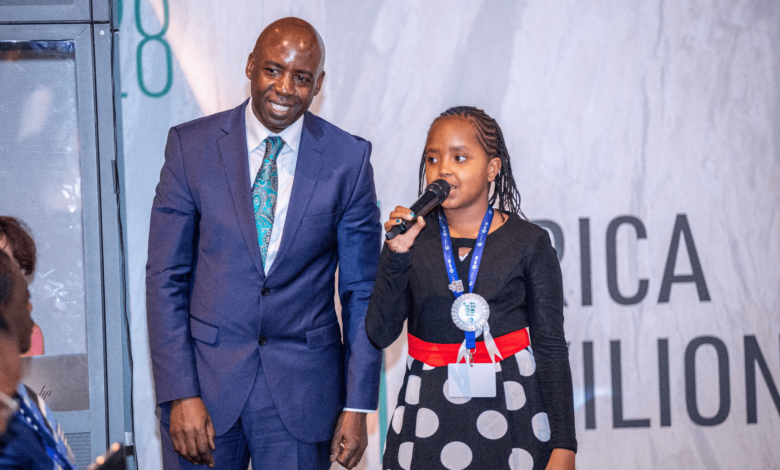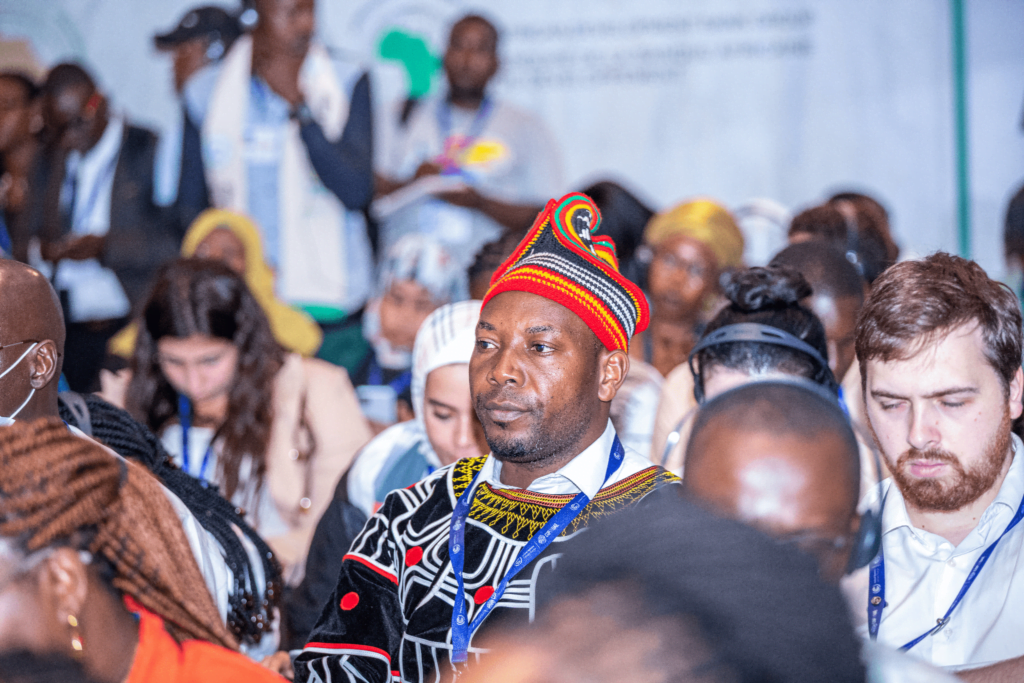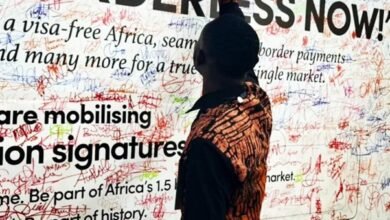COP28 : african civil society unveils its recommendations for the fight against climate change in Africa
At the United Nations’ climate conference COP 28 an African civil society coalition has unveiled its five absolute priorities to fight climate change: adaptation, loss and damage, food systems; land use; and the protection and restoration of forests.

By the « African Development Bank Group-Civil Society Coalition on Climate and Energy »
Africa is the continent most vulnerable to climate change, yet it receives the least amount of climate finance. According to the Climate Policy Initiative (2023), climate finance flows continued to fall short of needs, particularly in developing and low-income economies. Less than 3% of the global total (USD 30 billion) went to or within least developed countries (LDCs).
The ten countries most affected by climate change between 2000 and 2019 received just USD 23 billion. This is far below the continent’s needs and potential, considering its abundant renewable energy resources and opportunities for low-carbon development. The African Economic Outlook (AEO) 2023 suggests that between $2.6 trillion and $2.8 trillion is needed by 2030 to implement Africa’s climate Civil society Organizations play key roles in pushing for new legislations, policies and strategies on climate change and financing while holding governments accountable to their commitments.
The ten countries most affected by climate change between 2000 and 2019 received just USD 23 billion
There is evidence that strengthened partnerships between communities, governments, the private sector, and other non-state actors contribute to enhancing the resilience of communities through inclusive strategies addressing climate risks, and piloting climate solutions.
There is therefore an urgent need to step up climate adaptation finance, as well finding innovative ways to deliver adaptation finance at scale and speed – with a focus on anticipatory adaptation measures and effectiveness.
Africa’s climate Civil society Organizations play key roles in pushing for new legislations, policies and strategies on climate change and financing while holding governments accountable to their commitments

The Bank recognizes that the private sector’s crucial role in mobilizing finance for climate and green growth in Africa. However, there is a need to engage civil society organizations so that private sector investments align with the development needs of local communities and promote sustainable and equitable growth.
THE COALITION DECLARES THAT :
1. We, the members of the African Development Bank Group-Civil Society Coalition on climate and energy have identified key priorities—adaptation, loss and damage; food and land use systems, protection, and restoration of forests as top priorities.
2. Parties should uphold their commitments under the Paris Agreement and mobilize adequate and predictable private sector financing for climate and green growth in Africa.
3. Grassroots organizations and frontline communities are best equipped to understand local vulnerabilities and implement contextually appropriate resilience responses. Inclusive adaptation and resilience actions must prioritize the active involvement of women, youth, disabled, displaced, and indigenous peoples in their design, decision-making, implementation, and monitoring and evaluation.
4. We renew our commitment to gender equality and women empowerment in our climate action and consider a gender perspective in developing resource mobilization strategies, applying climate finance instruments, and ensuring equitable participation in the decisionmaking and deployment of financial resources, particularly at the local level.
5. The Coalition endorse the African leaders call for channeling of Special Drawing Rights (SDRs) for climate financing to Africa, including through the African Development Bank which will be able to leverage the SDRs by three to four times. Increase the share of adaptation finance in the overall climate finance portfolio and ensure that it is commensurate with African countries’ adaptation needs and costs.
Enhance the access and delivery of adaptation finance that is grants-based and predictable by simplifying and streamlining the procedures and criteria of multilateral funds and bilateral donors and by strengthening the capacities and readiness of all institutions and stakeholders.
WE INVITE THE GLOBAL COMMUNITY, GOVERNMENTS, AND DEVELOPMENT
PARTNERS AT COP28 :
1. To implement best practices, innovations, and technologies inclusively, involving farmers, local communities, especially women and youth in an approach that blends scientific and traditional knowledge without harming biodiversity or undermining societal resilience.
2. To ensure that adaptation and resilience-building are central to Africa’s fragile economies, vulnerable to climate change.
TO CLOSE THE GAP AND RAISE PRIVATE INVESTMENT IN ADAPTATION, THE BANKCSO COALITION DEMANDS THAT COP28 :
1. Enhances the enabling environment for private sector engagement in climate action in Africa by providing policy, regulatory and institutional support, addressing barriers and risks, and fostering multi-stakeholder partnerships and dialogue.
2. Scales up the mobilization and allocation of private sector finance for climate and green growth in Africa by leveraging public finance and instruments, enhancing access to international and domestic sources, and ensuring transparency and accountability of financial flows.
3. Ensures that private sector finance for climate and green growth in Africa aligns with the principles of environmental integrity, social justice, human rights, gender equality, and participation of local communities through CSOs and targets adaptation over all else.
4. Strengthens the capacity and voice of African CSOs to engage with and influence the private sector on climate and green growth issues by providing adequate resources, platforms, networks, and mechanisms for consultation and feedback.
5. Works with public sources and other stakeholders to more than double adaptation finance by 2025, considering the Yaoundé African Youth Call on More than Doubling Adaptation Finance for a Resilient Africa.
6. The following concrete steps should be taken to achieve this goal :
- Improve the effectiveness and efficiency of adaptation finance by promoting participatory and inclusive planning and decision-making processes and by ensuring accountability and learning in implementing projects and programs.
- Foster the innovation and scaling-up of adaptation finance by supporting the development and deployment of new and emerging sources and instruments of finance and by leveraging private sector investments and partnerships.
- Enhance the coherence and coordination of adaptation finance by harmonizing the policies and standards of different funding sources and channels and fostering regional and cross-sectoral collaboration and integration of adaptation actions.
Our Coalition is committed to working with all stakeholders on adopting a post-COP28 action plan to ensure monitoring, accountability, and ownership by local communities.
*The priorities were announced by Secou Sarr, Executive Secretary of ENDA-Tiers Monde, representing a collective of African non-governmental organizations (NGOs) at a side event held on Tuesday 5 December, at the ongoing United Nations Climate Conference (COP28) in Dubai.
These NGOs gathered around a common platform launched at COP28 – the « African Development Bank Group-Civil Society Coalition on Climate and Energy ». Standing together, the groups intend to have greater influence on debate at COP28.






